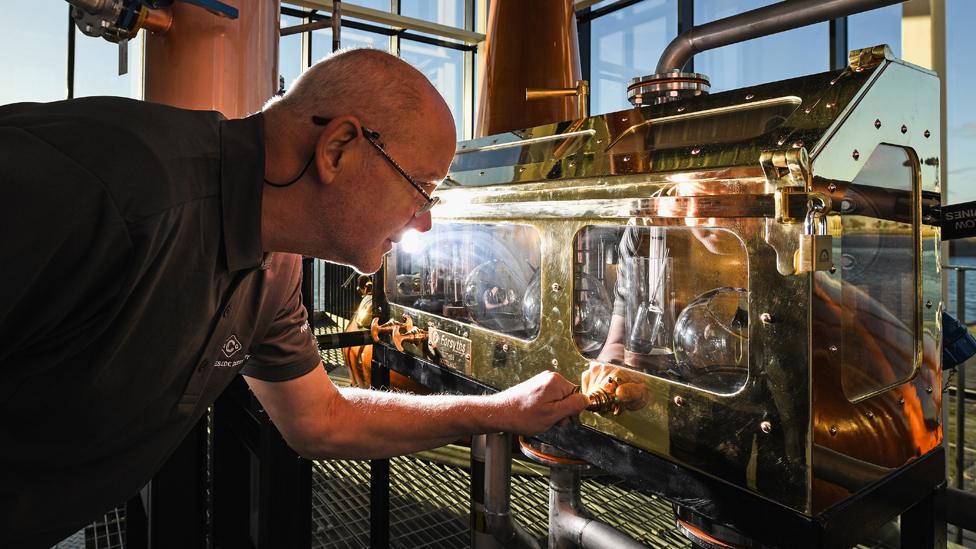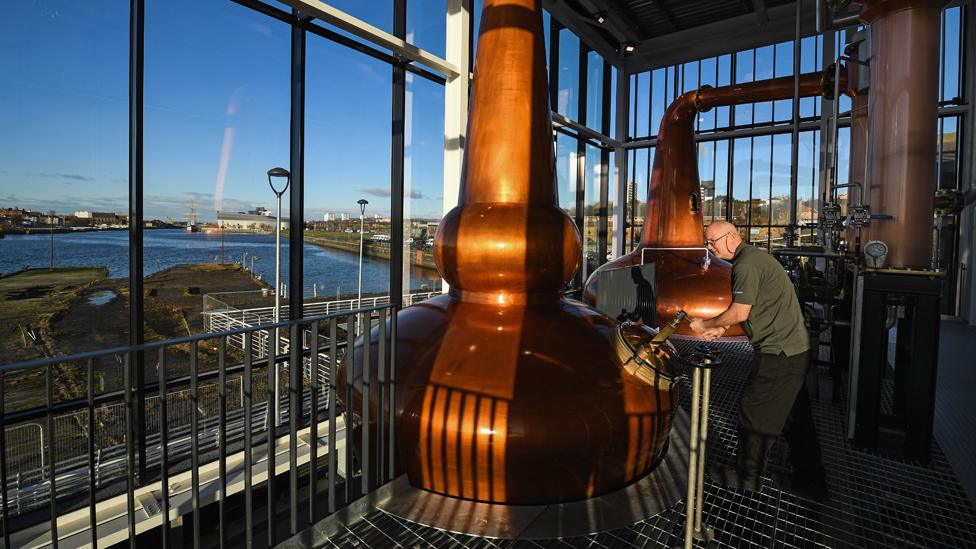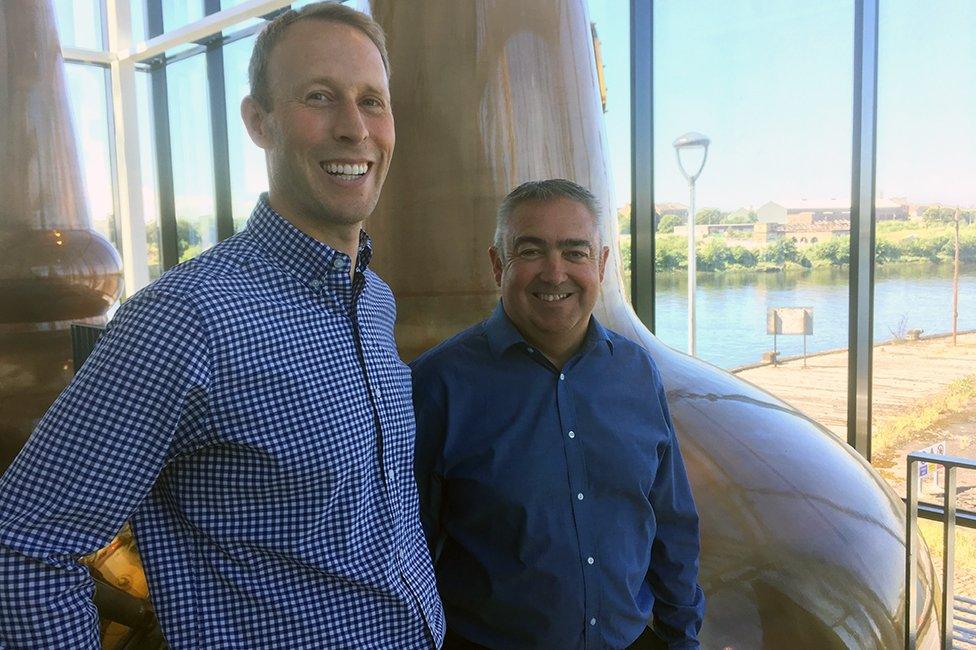Can you make whisky in just 24 hours?
- Published
Could Brexit change the taste of whisky?
A key ingredient of great whisky is time, lots of it. But a US distillery is questioning that notion by making its whiskey in just 24 hours. So, will this "fast-drink" product prove a challenge to the Scotch whisky industry?

Alistair McDonald is looking intently into a mash tank at the new Clydeside Distillery in Glasgow. This is just the start of the whisky-making process, as the sugar in the mix begins to turn into alcohol.
It is still a long way from distillation and then maturation, which sometime next year will yield the first product which can be sold as whisky.
It is a complicated business. And Alistair should know as he has been doing it for more than 30 years, first on Islay and now in the brand new Clydeside distillery in Glasgow. His boss, Andrew Morrison, says that it's also extremely time consuming.

Senior distillery operator Neil Carlton at the Clydeside Distillery
He explains: "Where you're always striving to get to is a 10 or 12-year-old as your flagship product out in the market place.
"So you're looking at pretty close to 20 years as an overall project. And so that has its challenges in itself from a finance point of view, huge capital expense upfront.
"And so you have to be very, very committed to what you're doing and passionate about what you're doing and believe that you're really going to deliver something of high quality to the marketplace."
'So different to anything I've tasted'
Given that background, you might expect Andrew and Alistair to be somewhat askance at a whisky product which can be made in 24 hours.
But Californian company, Endless West, insists it can be done. They say they have analysed the composition of whisky at a molecular level which means they can recreate the taste using natural ingredients but without any maturing.
Whisky-making goes back generations in the Morrison family so I wondered if Andrew might like to try this new competitor. In his small office at the distillery, he takes a sip and then pauses for some time - apparently lost for words. Not necessarily in a good way.

He says: "I think it would be a fun product to have comparable tastings with, because it's so different to anything I've tasted that's classed as whisky. Obviously it's very young. You do get a lot of the characteristics you expect with young whiskies, which is quite strong alcohol coming through.
"But there's nothing really there to soften it. I'm not getting any kind of citrusy notes. I'm not getting any smoke. So, I'd say it's quite lacking in character."
I spoke to Alec Lee, the boss of Endless West, who explained to me the concept of his new product.
From his California base, he says: "For us there's this analogy of electronic music for whisky. There's a traditional way of making music that involves various instruments and then somebody comes along one day and says, you know, I can express this art form digitally and that sort of opens the door to new mechanisms of expressing this traditional craft."
Authentic taste?
The company doesn't yet have big plans to market its product outside the US but that might happen, particularly if a post-Brexit trade deal makes it easier to export to the UK.
It's a long-standing ambition of American trade negotiators to get rid of the restrictions which mean that anything called whisky has to be matured for at least three years.
And so to the really important taste test, not by a rival producer, but by the great Scottish public.

Andrew Morrison and Alistair McDonald make whisky at the Clydeside Distillery in Glasgow
Some were sceptical, saying it didn't smell like whisky and "It'll never beat a nice malt". Others were astonished to learn it had been made in 24 hours and worried that it might "tank" Scotland's whisky industry.
But there were fans as well. One woman told me that it "smelt more of apricot or peach" and was "very smooth, very nice". Another taster suggested that they must have sneaked in some real Scotch to achieve such an authentic taste.
All of which suggests that the industry in Scotland might have something to worry about, if it does become easier to sell whisky products in Scotland that are not made here and don't have to stick to the existing rules about how long it has to mature.
However, the Scotch Whisky Association says it does not expect the status of Scotch to change.
Nevertheless, California businessman Alec believes time is on his side. He thinks a whole range of factors means that synthesised food and drink will be a much bigger part of what we consume in the future, whatever the fate of this particular product and Britain after Brexit.